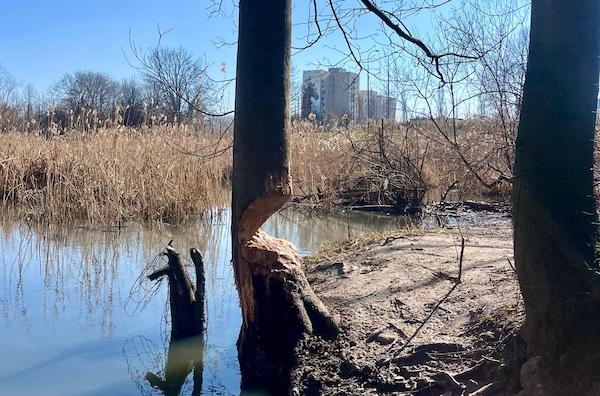Politics, religion, and war shape urban nature – an article co-authored by the research team of Prof. Marta Szulkin in Nature Cities

17 10 2025
How do politics, religion, and war influence nature, including that found in cities? This question is addressed in the latest article coauthored by Dr Zuzanna Jagiełło, Ignacy Stadnicki, MSc. and Prof. Marta Szulkin from the Institute of Evolutionary Biology, Faculty of Biology, University of Warsaw, published in the prestigious journal Nature Cities.
The review article emphasizes that while studies on urban evolution have traditionally focused on physical factors – such as habitat fragmentation, pollution, and resource availability – social and political forces, including religion, armed conflict, and policy decisions, also play a crucial role in shaping urban environments and the selective pressures within them. The authors highlight that incorporating these dimensions is essential to understanding how cities influence the evolution of the organisms that inhabit them.
The article has already gained significant attention – it was featured, among others, in the weekly Polityka, Brazilian La Folha, American Los Angeles Times, or international The Conversation.
In an interview, Prof. Marta Szulkin discussed the practical consequences of the above-mentioned factors – such as the disappearance of sparrows in war-torn Ukraine, new threats to animals arising from military technologies, and the role of places of worship as potential urban biodiversity refuges.
“I encourage decision-makers, across all faiths, to green the areas under their care, thus creating oases of peace and contemplation,” emphasizes Prof. Szulkin.
Photo by Marta Szulkin. The picture shows a tree almost felled by a beaver in the Służewiecka Valley — in the very center of Warsaw, right next to a housing estate built in the 1970s.